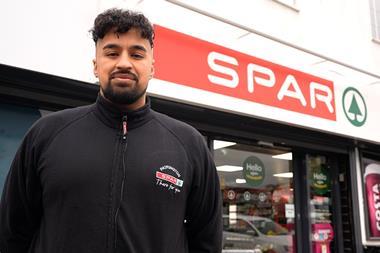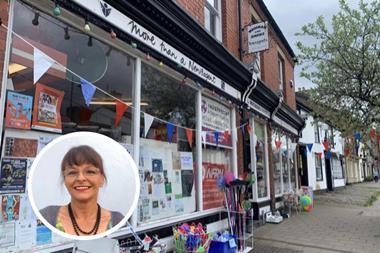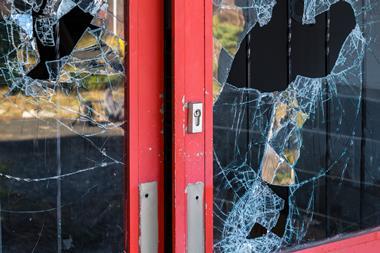Sylvia Winter
Creaton Post Office & Village Shop, Northamptonshire
Creaton Post Office & Village Shop was already receiving 50% rate relief, but after contacting her local council and discussing her case, Sylvia was able to get 100% rate relief.
Michael Haith
Smiley’s One Stop Shop, Blackpool
Michael saves money by regularly visiting price comparison sites on the internet to ensure his energy and insurance providers are giving him good value for money. He recently saved £2,000 by switching.
Raj Chandegra
Londis, Barnes, London
Raj changed the shift patterns of his staff to ensure that he did not have too many staff in store when it wasn’t busy. This saved him paying for an additional 20 hours a week, which led to a saving of £7,000 a year.
Chris Pollard
Barlby Village Stores, Selby
By investing in energy-efficient lighting, Chris is now using fewer lights in his chillers, which means a lower energy bill. He is also careful to adapt his exterior lighting so that it switches on later over the summer.
Have you noticed your overheads rising in the past couple of years?
Raj: Yes, big time. The biggest costs have been rent, rates, staffing and energy. It’s hard, especially with the minimum wage rising - we try to work out a balance between reasonable wages and a decent profit.
Sylvia: Yes, the minimum wage has gone up and we had to shop around for a better energy deal as our bills had increased dramatically.
Chris: Yes, mainly electricity costs. The minimum wage bugs me, too. The government announces that it is changing minimum wage and minimum holidays and making out that it’s great. But they don’t have to pay for any of these changes!
Michael: Definitely - electricity is going up all the time, and so is insurance because there are so many c-store robberies. A year ago the government encouraged entrepreneurs to open up shop and now the cost of everything has gone up - music licences, fire extinguisher tests, servicing alarm systems… The piece of pie that was attractive before is now much less so.
Do you think that overhead increases are posing a threat to your business overall?
Raj: Yes, they are. With some of them, there isn’t much you can do about it. But with others there are ways to deal with them, such as investing in energy-saving equipment. In the short term you don’t see the gain, but you have to think about the long term.
Sylvia: Yes, everything is a threat - bills, staffing costs and so on.
Chris: It certainly doesn’t help. Five years ago I was on a five-year fixed price energy contract where I was paying £800 a month. When that finished, costs had more than doubled. I ended up with British Gas, which was trying to charge 11p per kilowatt hour (kwh), which equated to £2,720 a month, but I negotiated it down to 7.2p. It’s now risen to 8.2p per kwh and my monthly bill is £1,800. I’m going to have to sell an awful lot of sausage rolls to pay for that! I’m just coming out of a two-year deal now, so that’s set to rise further. I’m shopping around now, but it’s looking like I’ll have to pay 10p per kwh.
Michael: Without a doubt. My dream was to buy more stores, but now I have three I won’t be buying another because I just feel like I’m on a conveyor belt of paying costs. The government thinks it can bleed us dry.
What was the last cost saving you made?
Raj: I reduced the staffing hours. I refined shift patterns so that we have more people on when we have deliveries and when we are busy, and less when it is quieter. It saved me 20 hours a week at one store, which equates to a £7,000 saving a year.
Sylvia: We’ve successfully applied for 100% rate relief. Certain stores can receive a mandatory 50% rate relief if they are the only store or post office in a rural area. But a discretionary relief of up to 100% is available in some cases. We had to contact the council and provide them with various figures in order to get it agreed.
Chris: I have a 15-metre run of refrigeration and every shelf used to have its own tube lighting - it was lit up like Christmas! Now I have three or four ceiling spotlights angled at the shelving, so I don’t have the cost of running and replacing 40 tubes.
Michael: I changed my insurer three months ago and saved £600 across all three stores.
Are convenience retailers taking full advantage of the opportunity to save costs?
Raj: I think every retailer is aware that they need to look at cost savings, but sometimes they don’t approach it in the right way.
Sylvia: People may well want to make cost savings, but a lot of it comes down to time. If you’re cutting staffing levels to save money, you can end up working more hours yourself, and that leaves less time to analyse spending.
Chris: A lot of smaller shops are struggling - you can tell because they’re taking bulbs out of their strip lights and their stock levels are low. But sometimes you see people putting more money into something that’s losing money, rather than looking at the changes they need to make. They need to keep an eye on every penny and work out where they can save.
Michael: I think they have to in order to keep going. A lot of retailers are shopping around for deals. I am having to spend time on comparison sites looking for cheaper electric and insurance. You have to work hard to keep costs down.
What is the biggest cost saving you have ever made?
Raj: When I refitted my smaller store in Barnes about three years ago I saved £20,000 just because I was savvy about negotiating with suppliers. If you play hardball you’ll generally find good deals.
Sylvia: A few years ago we shopped around for public liability insurance and made a significant saving.
Chris: For every £100 I pay into the bank I get charged 69p, and it was costing me £165 a week. But since I’ve got a cash machine, all my money goes into that, plus I get paid £1,400 a month in commission. That equates to a £25,300 saving.
Michael: I switched energy suppliers, which saved me £2-3,000 a year.
What are the key areas where cost savings can be made?
Raj: Retailers need to look at managing staff efficiently, wastage, and the service they get from suppliers.
Sylvia: Energy bills are a major area to examine. I also shop around when I’m looking for new equipment. I’ll look on the internet and in trade magazines and see what deals are available.
Chris: Managing staffing levels and switching energy suppliers are the main areas in which I’ve found I can reduce costs.
Michael: Savings can be made by switching suppliers and looking at each department of your store to see where savings can be made. Putting doors on chillers is another area that I’m looking at.
How often do you analyse your spending and potential cost savings?
Raj: It’s an on-going process. When we prepare our accounts we really tend to scrutinise our spending.
Sylvia: As it gets near to the end of a contract, I’ll start looking at my options and see if there’s a better offer available elsewhere.
Chris: I always terminate my contracts three months before they are due to finish, otherwise you get a situation where they automatically roll over and you end up having to give an additional three months’ notice. Once I have taken steps to terminate the contract, that’s when I start shopping around for a better deal.
Michael: Every time a bill comes in, it triggers me to think about whether I can save. We’re currently looking at internet providers - even if I can save £10 a month on each store, that’s still £30 across all my stores and £360 in a year.
Who can retailers go to for advice on cost saving?
Raj: If you’re a symbol operator, then talk to your symbol group for advice. If you’re looking to save money on your energy bill, then it can just be a case of contacting a number of suppliers and comparing quotes. Talking to other retailers is the most valuable advice you can get. They can recommend suppliers and you can compare prices with each other - it saves a lot of legwork.
Sylvia: I go to the Rural Shops Alliance meetings, which is a great opportunity to speak to other retailers.
Chris: I’m always flicking through trade magazines for ideas, but a lot of cost savings just come down to common sense. With areas I am unsure of, such as the lifespan and energy-saving potential of LEDs, I will speak to Nisa.
Michael: I always look through trade magazines and at price comparison sites on the net.
Are there any less obvious areas that retailers tend to overlook when trying to make cost savings?
Raj: Whenever you buy new equipment, it’s worth shopping around. But price isn’t the only thing to take into account - service levels are also important.
Sylvia: Watch out for any new legislation going through government that may help small businesses. The Carbon Trust can also help you to access funds for energy-efficient equipment.
Chris: Exterior lighting is an area that’s worth looking at. I have strip lights on all windows, floodlights in the car park and a big lit-up advertising board. Lots of people operate their lighting on an automated timer, but you need to be on the ball, or you’re just wasting money. I make sure mine only comes on when required, taking into account daylight savings.
Michael: Recycling. I used to pay £12 per skip for my general waste, which cost £4-5,000 a year. Now I have a firm collect the bulk of my waste for recycling and it costs £34 per collection.











![WG-4003[58]](https://d2dyh47stel7w4.cloudfront.net/Pictures/274x183/4/5/1/353451_wg400358_6083.jpg)











![C-Store_Champions_logo-CHOSEN[1] 2023](https://d2dyh47stel7w4.cloudfront.net/Pictures/380x253/6/5/7/301657_cstore_champions_logochosen12023_817064.jpg)




No comments yet